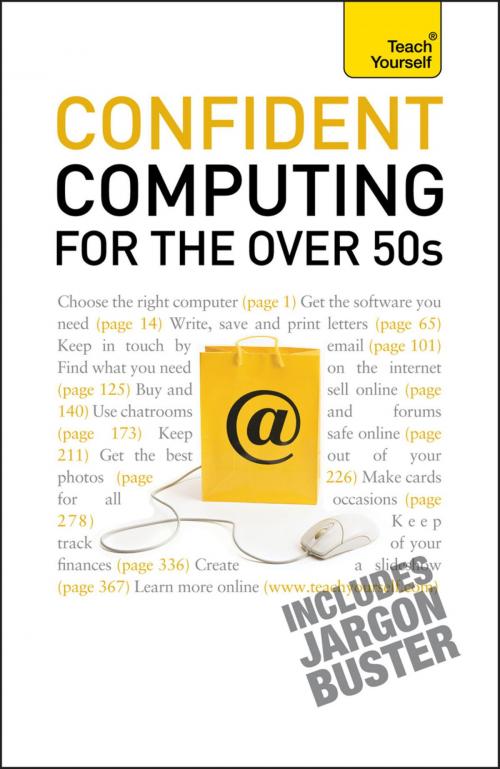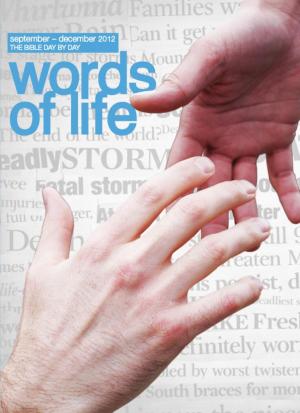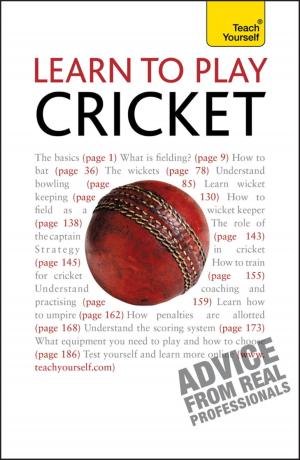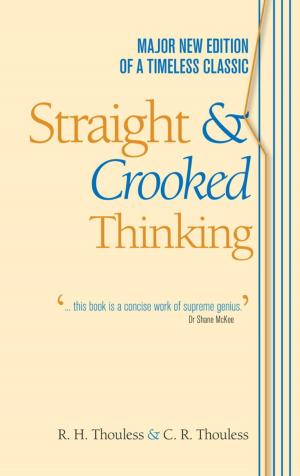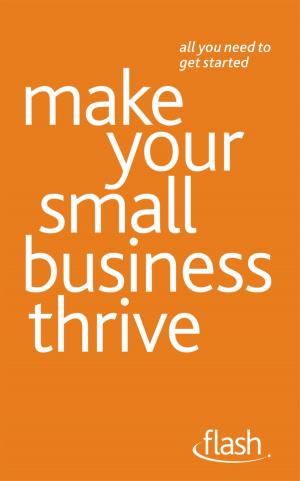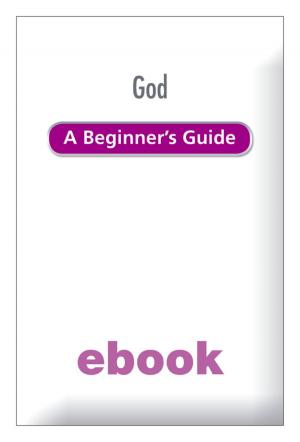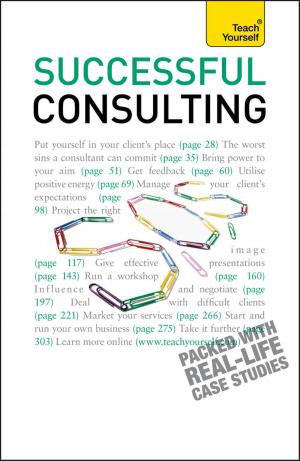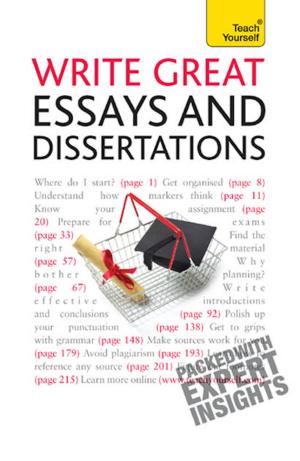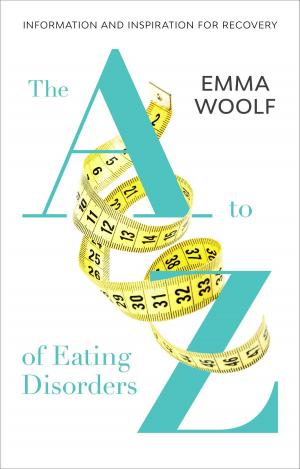Confident Computing for the Over 50s
A non-technical practical guide for the late, absolute beginner
Nonfiction, Computers, General Computing| Author: | Bob Reeves | ISBN: | 9781444129236 |
| Publisher: | John Murray Press | Publication: | March 26, 2010 |
| Imprint: | Teach Yourself | Language: | English |
| Author: | Bob Reeves |
| ISBN: | 9781444129236 |
| Publisher: | John Murray Press |
| Publication: | March 26, 2010 |
| Imprint: | Teach Yourself |
| Language: | English |
Do you feel that you have been left behind in the technological revolution? Assuming no prior knowledge of using a computer, this book is written in a practical, light-hearted and non-technical style to take the terror out of the technology.
Bob Reeves approaches the subject in a highly accessible way, focusing on the computer applications of most interest to middle and third agers, including correspondence, photography, shopping online, personal budgets and researching your family history. It begins with the very basics and ends with an invaluable 'jargonbuster' glossary.
The book is made up of a series of self-contained chapters, with the emphasis on what the computer is being used for, rather than the software needed. For example: rather than a chapter on 'word-processing', there is a chapter on 'letter writing'; rather than 'desktop publishing' there is 'making a newsletter' and 'making cards for all occasions'; rather than one on 'digital photography' there is ' getting photographs on to the computer' etc. There will be clear instructions supported with screenshots, tips and hints throughout.
This approach sets it apart from other books on basic computer skills as it covers what you really want to do with your computer, breaking down any technical barriers and making the book totally relevant to the novice computer user.
NOT GOT MUCH TIME?
One, five and ten-minute introductions to key principles to get you started.
AUTHOR INSIGHTS
Lots of instant help with common problems and quick tips for success, based on the author's many years of experience.
TEST YOURSELF
Tests in the book and online to keep track of your progress.
EXTEND YOUR KNOWLEDGE
Extra online articles at www.teachyourself.com to give you a richer understanding of computing.
FIVE THINGS TO REMEMBER
Quick refreshers to help you remember the key facts.
TRY THIS
Innovative exercises illustrate what you've learnt and how to use it.
Do you feel that you have been left behind in the technological revolution? Assuming no prior knowledge of using a computer, this book is written in a practical, light-hearted and non-technical style to take the terror out of the technology.
Bob Reeves approaches the subject in a highly accessible way, focusing on the computer applications of most interest to middle and third agers, including correspondence, photography, shopping online, personal budgets and researching your family history. It begins with the very basics and ends with an invaluable 'jargonbuster' glossary.
The book is made up of a series of self-contained chapters, with the emphasis on what the computer is being used for, rather than the software needed. For example: rather than a chapter on 'word-processing', there is a chapter on 'letter writing'; rather than 'desktop publishing' there is 'making a newsletter' and 'making cards for all occasions'; rather than one on 'digital photography' there is ' getting photographs on to the computer' etc. There will be clear instructions supported with screenshots, tips and hints throughout.
This approach sets it apart from other books on basic computer skills as it covers what you really want to do with your computer, breaking down any technical barriers and making the book totally relevant to the novice computer user.
NOT GOT MUCH TIME?
One, five and ten-minute introductions to key principles to get you started.
AUTHOR INSIGHTS
Lots of instant help with common problems and quick tips for success, based on the author's many years of experience.
TEST YOURSELF
Tests in the book and online to keep track of your progress.
EXTEND YOUR KNOWLEDGE
Extra online articles at www.teachyourself.com to give you a richer understanding of computing.
FIVE THINGS TO REMEMBER
Quick refreshers to help you remember the key facts.
TRY THIS
Innovative exercises illustrate what you've learnt and how to use it.
